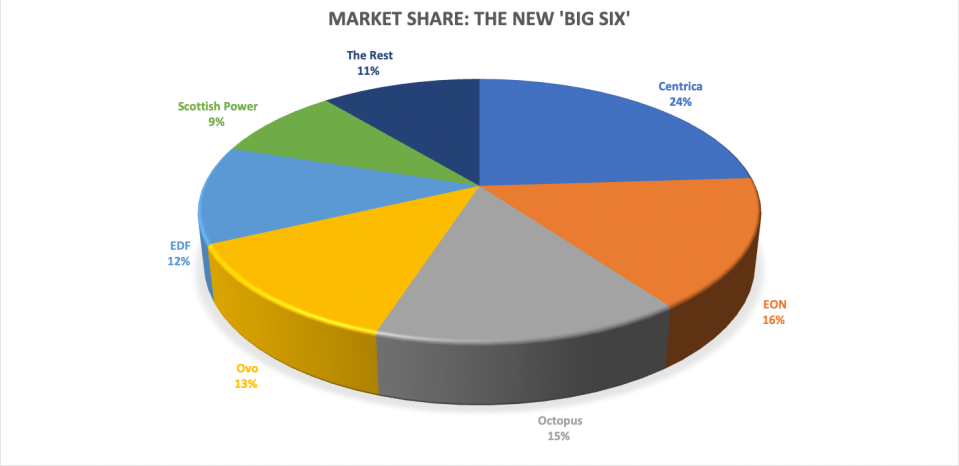Ovo Energy backs social tariff for vulnerable households facing record bills

Ovo Energy has joined calls for a social tariff to help households grappling with record energy bills, as the government urges the industry to do more to support vulnerable energy users.
Raman Bhatia, chief executive of Ovo told City A.M.: “Households have endured one of the worst economic shocks for a generation – and it’s critical we support them. We’re calling for a social tariff to help lower-income and vulnerable households receive ongoing help with their energy bills.”
The Big Six supplier is in favour of targeted relief for energy users identified by the government and community groups, in the form of a long-term cap on bills.
Similar social tariffs already exist in other industries such as the mobile and broadband sectors.
Investec has also lent its support to the concept of social tariff, arguing it could help create “a supply market that works for all.”
Senior analyst Martin Young said: “In our view, it is imperative that the vulnerable are protected, and the case for social tariffs looks ever stronger.”
In its latest report on British utilities, the investment group recognised that vulnerable households needed more help, but suggested that it would be too costly simply expand existing government support packages – pricing an extension at £13bn.
Meanwhile, Ofgem boss Jonathan Brearley has revealed the watchdog is currently considering the viability of a social tariff.
In a blog update the Ofgem’s website, he argued the industry “does not have time to waste,” and has called for a “serious assessment of a social tariff” to help manage the winter crisis.
Brearley explained: “This is a tariff that is set at a different rate for vulnerable customers and protects against the impact of extremely high prices. If it can be made to work, this could tackle the root cause of this issue and the distress that many customers are in this winter.”
Ofgem is attending a roundtable meeting hosted in Downing Street by BEIS ministers to discuss the future of prepayment meters, alongside the UK’s domestic energy firms and consumer charity Citizens Advice.

Social tariff calls follow prepayment pressure
The push for a social tariff comes with Business Secretary Grant Shapps urging suppliers to stop forcing vulnerable customers onto prepayment meters, with households threatened with court action by energy firms looking to claw back debts.
Last weekend, the cabinet minister wrote to British energy firms, threatening to name and shame suppliers that were not doing enough to help vulnerable customers.
However, the government has so far stopped short of an outright ban due to concerns over a subsequent increase in bailiff action if firms are unable to opt for prepayment meters.
This is despite calls from Citizens Advice for forced switches to be banned entirely, with the charity calculating that 600,000 people were forced onto a prepayment meter in 2022 because they couldn’t afford their energy bills.
It has warned that 160,000 more people could be moved onto a prepayment meter by the end of winter if no further action is taken.
Prepayment meters are regularly imposed on vulnerable customers, who are made to pay for their energy in advance by topping up an installed meter rather than a monthly fee through direct debits.
Over 500,000 warrants have been issued by suppliers to force entry into people’s homes over the past 18 months over unpaid debts, as first revealed by the i newspaper.
British Gas owner Centrica has pledged to stop remotely switching customers onto prepayment meters, but has not yet stopped forced installations.
Rival EDF confirmed to City A.M. it “continues to suspend debt collection from customers who are experiencing financial difficulties” – without commenting on forced prepayment installayions.
Meanwhile, a spokesperson for Octopus Energy described its use of prepayment meters as a tool to control debt as “vanishingly rare.”
Energy bills stay high despite gas price slump
There is increasing pressure on the industry to help vulnerable customers, with Chancellor Jeremy Hunt hiking the threshold for household support to £3,000 per year from April for the next 12 months.
The Energy Price Guarantee has been set at a subsidy rate of £2,500 per year for average use since last September.
Cornwall Insight is predicting the energy price cap will fall this year amid plummeting gas prices, and has lowered its forecasts for the overall cost of the household support package to £27bn for its entire 18-month duration.
It expects the cap will drop from its current monster rate of £4,279 per year for average use to £3,208 per year from April.
The cap is then expected to decline further to around £2,200 per year in the second half of the year.

This would mean there would be a three-month window when the price cap average will be above the support threshold in the energy price guarantee from April to June, meaning households will have to swallow a £500 per year hike in the energy price guarantee.
While the cap will later drop below the threshold for intervention in the Hunt’s support package next winter, household energy bills will still remain well above pre-crisis energy prices.
Before the collapse of dozens of suppliers and Russia’s invasion of Ukraine, the price cap hovered between £1,000 per year to £1,200 per year.
With the cap set to be nearly double that rate, there will be increasing pressure on the government to provide vulnerable households with more support.